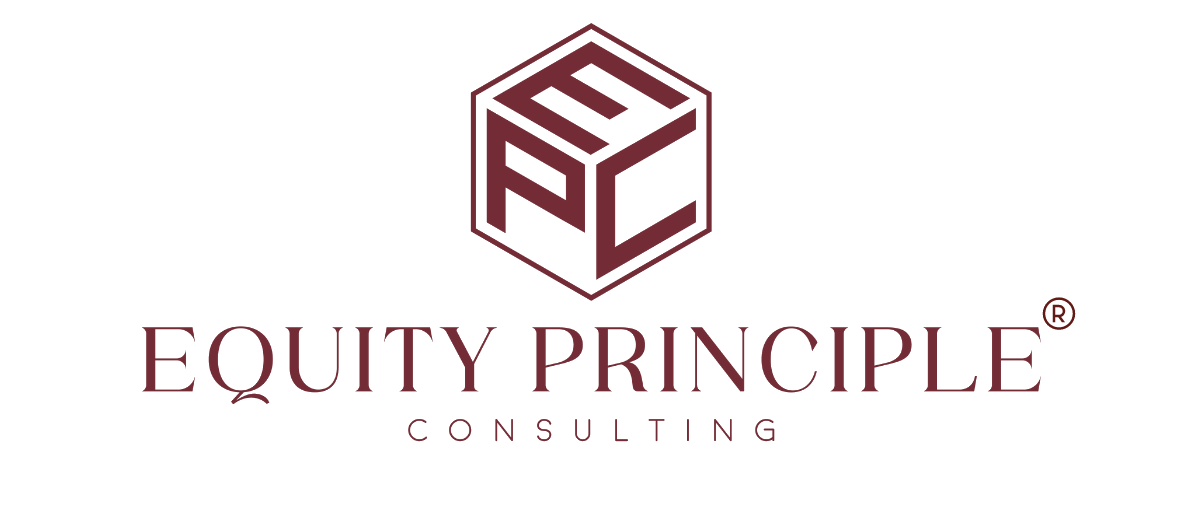Embracing Equity-Conscious Leadership for Transformative Organizational Change
In the realm of leadership and decision-making within organizations, the concept of “equity-conscious” practices is foundational to fostering inclusive and equitable workplace cultures. Equity-conscious leadership refers to the intentional and strategic effort by leaders to recognize and address systemic inequalities within their organizations.
It involves a deep commitment to understanding the unique challenges underrepresented groups face and implementing policies and actions that promote fairness and equal opportunities for all employees.
Similarly, equity-conscious decision-making is the process by which organizational decisions are made with a keen awareness of their impact on different groups, ensuring that these decisions contribute to dismantling inequalities rather than perpetuating them.
These practices empower leaders and organizations to create environments where diversity is celebrated, equity is prioritized, and inclusion forms the cornerstone of success.
Here’s how embracing this transformative approach can profoundly impact organizations striving to create inclusive and equitable workplace cultures.
Building Self-Awareness and Confronting Biases
The journey to becoming an equity-conscious leader begins with self-awareness. It requires leaders to recognize and confront their biases, a process that has been a guiding principle throughout my career. This journey demands rigorous self-reflection and a dedication to understanding equity and inclusion deeply, transforming personal insights into systemic changes.
Implementing Strategic Equity Audits for Organizational Clarity
Equity audits are vital tools for achieving transparency and accountability within an organization. They provide a factual basis for assessing fairness in policies, practices, and outcomes, enabling targeted interventions. I advocate for such strategic audits as they render both quantifiable and actionable equity considerations, allowing organizations to address disparities effectively.
Enriching Decision-Making with Diverse Voices
Equity-conscious decision-making elevates the decision-making process by ensuring diverse perspectives are heard and valued. This approach transcends tokenism, fostering genuine engagement and leading to more equitable and effective outcomes by leveraging various experiences.
Reframing Success with Equitable KPIs
Integrating equity goals into organizational KPIs involves redefining success metrics to reflect advancements in diversity, pay equity, and inclusivity. This shift ensures that success encompasses not just traditional performance metrics but also the degree to which equity is embedded into every aspect of organizational operations.
Fostering Trust and Accountability through Transparency
Transparent communication about equity efforts cultivates organizational trust and accountability. I champion this practice, emphasizing the importance of sharing the equity journey with all stakeholders, enhancing collective commitment, and building a culture of inclusivity.
Cultivating Collaborative Stakeholder Partnerships
Engaging external stakeholders amplifies equity efforts, offering new perspectives and accountability mechanisms. Such proactive engagement underscores a commitment to broader societal equity, enriching the organizational ethos with diverse insights and collaboration.
Emphasizing Continuous Learning and Evolution
The path toward equity is dynamic, requiring continuous adaptation and learning. Organizations must stay agile, revising policies and practices in response to emerging insights and societal trends, ensuring that equity efforts remain impactful and relevant.
Conclusion
Adopting an equity-conscious approach in leadership and decision-making is not merely ethical; it is a strategic imperative that underpins organizational success. Drawing from my experience and the principles of Equity Principle Consulting, it is evident that integrating equity into all facets of organizational culture is essential for creating environments where fairness, innovation, and inclusivity are realized. Looking to the future, the resilience and excellence of organizations will increasingly hinge on their ability to embrace equity as the bedrock of corporate leadership and success.

